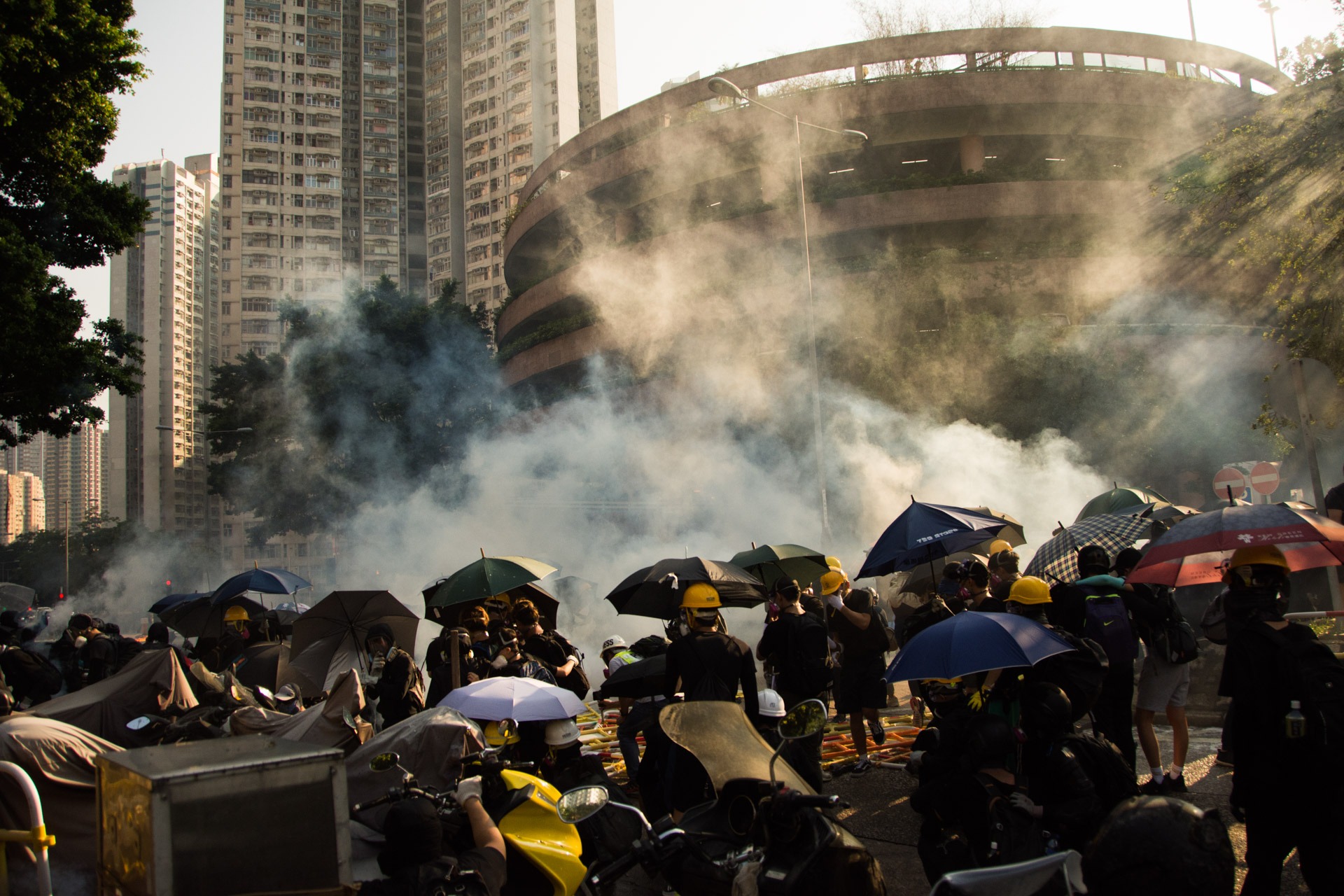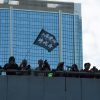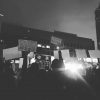Original: 【我係工會戰線嘅搞手之一,有啲嘢好想同大家講】, published in LIHKG
Translators: Samuel, P
If you would like to be involved in our translation work, please get in touch here.
About the June 20 referendum
The National Security Law is imminent, and though many people are looking forward to the actualization of the “laam chau (攬炒)” (“if we burn, you burn with us”) strategy,[1] it doesn’t mean that people genuinely want the Law to be enacted. And now, it feels like the social movement is stuck. Students and unions alike are trying to capitalize on this moment to engage in a form of struggle that carries lower risks: voting. To oppose the National Security Law, people voted in a referendum on whether to hold a class boycott and to go on general strike.
We weren’t successful this time. We didn’t manage to reach our goal. People are saying we didn’t do enough work publicizing the referendum, we didn’t reach out to enough people, the arrangement was too complicated, the timing wasn’t right… The list goes on. The reality is that the action didn’t work out. I don’t want to make any excuses or to blame anyone.
What I do want to say is that one failure will not break the union and general strike movement. Whether it is through the Legislative Council, the international sphere, or rallies and street protests, we seize every opportunity available to resist. Until we “successfully” liberate Hong Kong, every struggle can be deemed to be a “failure”—but this doesn’t mean that we will give up, or that what we do is useless.
On the general strike
To address the problems related to people randomly calling for a general strike with little coordination, we decided to hold a referendum. We wanted to prevent protesters from becoming disposable “condoms”,[2] because even if a lot of people indicated that they were willing to go on strike, and the referendum yielded a sufficiently positive response, it would still not immediately lead to a successful general strike. This is precisely why we didn’t want to spontaneously call for this action.
Does the failure of the referendum mean that the unions’ battlefront should shut up? I don’t see it that way. This referendum result only proves that this is not the right time to organize a general strike, a reality that is clearly backed up by numbers and statistics.
Until we ‘successfully’ liberate Hong Kong, every struggle can be deemed to be a ‘failure’—but this doesn’t mean that we will give up, or that what we do is useless.
Is a general strike useless? You can ask the same question of other battlefronts: Is the Legislative Council useless? Are rallies and protests useless? In reality, over the past year, we have stopped trying to calculate the usefulness of a course of action before trying our best to make it happen.
Of course, this doesn’t mean we should call on people to do senseless and stupid things, or to emotionally blackmail them into coming out onto the street—we still have to do cost-benefit analyses. But we must never allow the movement’s momentum to fade away.
On the union battlefront
The union drive and battlefront originated from a LIHKG post. Since then, organizers have been playing things by ear. In July last year, I participated in my first protest—I was a complete amateur. I made my first LIHKG post, opened a Telegram channel, established my own team, and then slowly, more and more people got involved. Forty unions were established, and began to slowly discuss what to do next…
Trying to organize a union and a general strike is extremely difficult in Hong Kong. Some of my friends have laughed at me—there are so many better battlefronts out there, why focus on the general strike? But I haven’t dwelled on this too much. Everyone is doing what they believe is the right thing to do. I’m just doing the same thing.
Some people claim that it is too late to strike now, that we have already passed the critical moment, while others argue that we need more time to organise and develop our unions. Regardless, I will keep fighting to bring the unionization movement forward.
On LIHKG
I would say that everything began for me on LIHKG—if not for LIHKG, I would not exist—so I do feel some affection towards the platform. There was a time during the movement when LIHKG had great mobilising power. Back then, if a post was decently written, it could get thousands of likes in a short time, and subsequently get shared by everyone on Facebook and Instagram. Within a few hours, over tens of thousands of people in Hong Kong would have read that post. It is precisely for this reason that many people strove to analyse the ongoing protests and offer suggestions on LIHKG, to further the social movement.
Over the past year, we have stopped trying to calculate the usefulness of a course of action before trying our best to make it happen.
Although it is often said that “one should not take LIHKG too seriously”, I cannot help but be bothered by the current state of LIHKG. It is no longer as impactful as it used to be, and the discursive atmosphere in the forum has become just plain bad. I genuinely hope we can stop acting with such antagonism towards one another. Because we are all anonymous on LIHKG, we easily end up labelling and dismissing others as “left plastics (左膠)”,[3] “wumao (五毛)”, “brainless fans of pan-democrats (泛粉)”, “hotdogs (熱狗)”,[4] and “divisive bastards (分化L)”. But in real life, we are all ordinary people, and gentler human beings. I hope we can all be more accommodating and forgiving to our fellow protestors, and stop cursing at one another all the time.
On the social movement
The LegCo primaries are coming soon. I urge everyone to not become overly wrapped up in electoral politics. The election is at best a side mission, whereas our emphasis must be placed on growing the movement as a whole.
I have never been an optimistic person. I estimate that in the worst case scenario, the national security law will be passed, protestors involved in the international front will either all be arrested or go into exile, and ordinary folks, while not being penalised directly, will be scared away from further participation. Western governments will be vocal in their outrage, and exchange rhetorical fire with China, testing the country’s resolve—while at the same time doing nothing practical. In the two coming decades, the people in Hong Kong will suffer under a prolonged period of white terror. But our movement will not end there.
I have reflected a lot over this year. In the past, Hong Kongers used to only think about their own personal lives and interests: advancing their careers, buying an apartment, and getting married. But now, we will think about justice, democracy, and freedom.
I really love Hong Kong. I really care about whether my fellow Hongkongers are living a good life or not, and am really interested in exploring the history of this city. So no matter what happens, I will persist and fight on.
I believe that a dark age is ahead of us, but I will make resistance my life’s calling.
2019 was the first year of our movement. 2020 is its first anniversary, and the beginning of its second year.
There will be no “end game” but only an “infinity war”. Promise me, fight on with me!
Footnotes
[1] The “laam chau” strategy derives from a quote in The Hunger Games: “If we burn, you burn with us”. It refers to the idea that Hong Kong is willing to risk its economic position in relation to the U.S. if that will also jeopardize China’s position. ↩
[2] This Cantonese catchphrase generally refers to the treatment of others as disposable, like condoms. The metaphor gained popularity among Hong Kong protesters as a warning not to treat fellow protesters (especially frontliners) as disposable, emphasizing the indispensability of each individual to the whole movement. ↩
[3] A derogatory Cantonese catchphrase for people who are left ideologically and unstrategic practically. It first became popular as a derogatory phrase against certain protestors who object to any form of escalation and radical action. ↩
[4] A derogatory Cantonese catchphrase for people who are localist ideologically and who do nothing constructive beyond undermining others. It was initially a derogatory phrase against Civic Passion, a localist political party in Hong Kong, whose party name in Chinese begins with the word 熱 (hot). ↩





